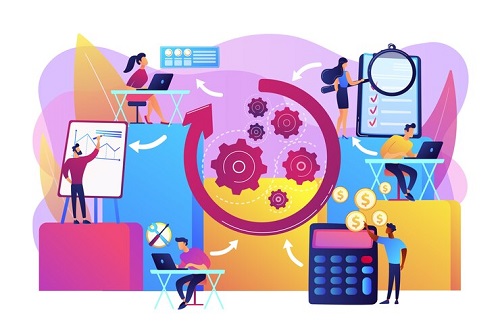Understanding Machine Learning’s Scope
Machine learning (ML) has revolutionized various industries, from healthcare to finance, by automating tasks and providing data-driven insights. At its core, ML involves training algorithms on large datasets to recognize patterns and make predictions. Common applications include image recognition, natural language processing, and recommendation systems.
However, when it comes to complex decision-making scenarios, the capabilities of ML can be limited. Simple decisions, like identifying an object in an image, are straightforward for ML models. In contrast, complex decisions involve multiple variables, contextual understanding, and often, ethical considerations. These scenarios require a level of reasoning and adaptability that current ML models struggle to achieve.
Data Dependency and Quality Issues
The performance of ML models heavily depends on the quality of data they are trained on. High-quality data is crucial for accurate predictions and reliable outcomes. However, real-world data is often incomplete, biased, or noisy, posing significant challenges.
Challenges Posed by Data Issues:
- Incomplete Data: Missing values can skew model predictions.
- Biased Data: Data reflecting societal biases can lead to unfair outcomes.
- Noisy Data: Irrelevant or erroneous data can confuse models.
Real-World Examples:
- Healthcare: In medical diagnosis, incomplete patient records can lead to incorrect predictions.
- Finance: Biased credit scoring models can unfairly disadvantage certain demographic groups.
- Retail: Noisy sales data can result in poor demand forecasting.
Lack of Contextual Understanding
ML models excel at pattern recognition but lack contextual awareness. They process data without understanding the underlying context, which is crucial for many complex decisions.
Examples Where Context Matters:
- Legal Judgments: Understanding the nuances of legal cases requires context beyond mere data points.
- Customer Service: Responding to customer queries effectively often requires understanding the context of the conversation.
- Healthcare: Diagnosing a patient involves considering their medical history, lifestyle, and other contextual factors.
Limitations of Current Models:
- Nuanced Contexts: ML models struggle with scenarios requiring deep contextual understanding.
- Dynamic Environments: Models often fail to adapt to changing contexts in real-time.
Ethical and Bias Concerns
Bias in ML algorithms is a significant concern, especially in complex decision-making. Algorithms trained on biased data can perpetuate and even amplify existing inequalities.
Impact of Biased Algorithms:
- Discrimination: Biased hiring algorithms can discriminate against certain groups.
- Unfair Outcomes: Algorithms in criminal justice can unfairly target minorities.
- Ethical Dilemmas: Bias in healthcare algorithms can lead to unequal treatment.
Case Studies:
- Hiring Algorithms: Some companies have faced backlash for using biased algorithms in recruitment processes.
- Predictive Policing: Algorithms have been criticized for disproportionately targeting minority communities.
- Healthcare Algorithms: Studies have shown that some algorithms prioritize certain demographics over others, leading to unequal healthcare access.
Interpretability and Transparency Challenges
Understanding and explaining ML models is crucial for trust and accountability. However, many models, especially deep learning algorithms, operate as “black boxes,” making it difficult to interpret their decisions.
Importance of Model Interpretability:
- Trust: Stakeholders need to trust the model’s decisions.
- Accountability: Transparent models allow for accountability in decision-making.
- Regulation Compliance: Interpretability is often required to comply with regulations.
Challenges:
- Complexity: Advanced models are inherently complex and difficult to interpret.
- Black Box Nature: Some algorithms provide little insight into how decisions are made.
Adaptability and Flexibility Issues
ML models are often rigid and struggle to adapt to new, unforeseen scenarios. Human adaptability, on the other hand, allows for flexible decision-making in dynamic environments.
Comparison with Human Adaptability:
- Humans: Can quickly adapt to new information and changing contexts.
- ML Models: Require retraining and may still struggle with novel scenarios.
Examples of Poor Outcomes:
- Disaster Response: ML models may fail to adapt to the rapidly changing conditions of a natural disaster.
- Market Predictions: Financial models can struggle with unprecedented market events, leading to significant losses.
Dependency on Human Oversight
Despite their capabilities, ML models often require human oversight to ensure accurate and ethical decision-making.
Necessity of Human Oversight:
- Error Correction: Humans can identify and correct model errors.
- Ethical Judgments: Humans can make ethical decisions that models cannot.
- Contextual Understanding: Humans provide the contextual awareness that models lack.
Examples of Successful Collaboration:
- Healthcare: Doctors use ML models to assist in diagnosis but make the final decision.
- Finance: Analysts use ML predictions to inform investment decisions but apply their judgment.
Risks of Over-Reliance:
- Automation Bias: Over-reliance on models can lead to overlooking errors.
- Loss of Skills: Excessive dependence on automation can erode human expertise.
Future Directions and Potential Solutions
Addressing the limitations of ML in complex decision-making requires innovative approaches and interdisciplinary collaboration.
Emerging Technologies and Methodologies:
- Explainable AI (XAI): Developing models that are transparent and interpretable.
- Fairness Algorithms: Creating algorithms that mitigate bias and ensure fairness.
- Context-Aware Models: Enhancing models to better understand and adapt to context.
Role of Interdisciplinary Approaches:
- Collaboration: Combining expertise from fields like psychology, ethics, and sociology with ML.
- Holistic Solutions: Developing comprehensive solutions that address technical and ethical challenges.
Vision for the Future:
- Enhanced Capabilities: Future ML models will be more adaptable, context-aware, and fair.
- Human-Machine Synergy: Continued collaboration between humans and machines will lead to better decision-making outcomes.
- Ethical AI: Emphasis on developing ethical AI that prioritizes fairness and transparency.
Machine learning holds immense potential, but its current limitations in complex decision-making highlight the need for ongoing research and innovation. By addressing these challenges, we can unlock the full potential of ML and ensure it serves humanity effectively and ethically.



